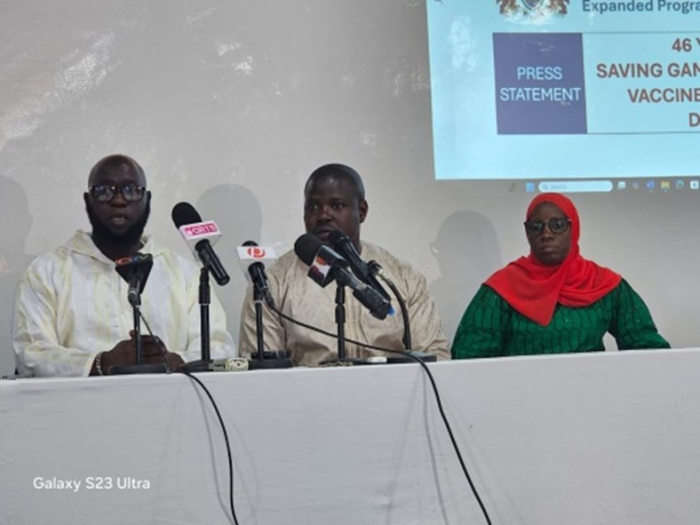
EPI began its services at the end of 1970s, initially delivering six vaccines and since then it has evolved to protecting Gambians from 16 vaccines preventable diseases.
It is against this backdrop that the unit under the Ministry of Health will today, Friday 13 June, stage a workshop designed to assess progress and challenges; identify new opportunities for future collaboration across the multiple stakeholders of the Ministry.
At a press briefing held on Thursday at Baobab Hotel in building up to the event, Mbaye Jagne, deputy programme manager at EPI, revealed that the immunisation programme in The Gambia is on the right track in returning to its Covid-19 pandemic performance.
However, he pointed out that there are some formidable challenges such as dissemination of information through social media, demographic growth and urbanisation as well as the continued addition of more vaccines to the national schedule, which, he said, also has some economic burden on the country.
Jagne also talked about some investment made in the past with regard to vaccine services, highlighting that vaccination is one of the best investments the country has made thus far.
Vaccines are highly cost-effective and according to World Health Organisation, every US$1 spent on vaccination returns up to US$44 in economic and social benefits. It also reduces health care costs as preventing disease reduces the burden on health systems and frees up resources.
He noted that it also increases productivity as healthy children attend school and healthy adults work more consistently, thus boosting economic output.
He disclosed that in 2017, WHO published a health-economic impact showing that pneumococcal disease, rotavirus, rubella and measles result in significant economic impact with annual estimates at above US$13 billion for the African continent.
The measure of this impact, he said, includes both the costs of productivity losses due to premature deaths (US$10 billion) and long-term sequelae (US$2 billion), hospitalizations (US$260 million) as well as outpatient visits (US$73 million).
Jagne also noted that pneumococcal diseases alone represents 38% of the economic impact (US$5 billion), rotavirus US$4 billion, and measles and rubella each accounts for US$2 billion.
Gambia’s response
The Gambia’s journey in healthcare is marked by continuous improvements - for instance, life expectancy rate has risen from 59 to 65 years from 2000 to 2019.
This is resultant of the successful implementation of public health programmes such as Expanded Programme for Immunization (EPI), vaccinating adults and children against vaccine preventable diseases, he said
Due to its pragmatic and effective policies, in 2018 The Gambia’s EPI was rated by the WHO as a robust immunisation system; being the top category in African countries.
Also, The Gambia’s National Development Plan (2023 to 2027) includes immunisation as a key strategy to providing quality, accessible and affordable health care services for all Gambians.
Challenges ahead
The progress of the immunisation programme in The Gambia and most other countries has experienced some stagnation since 2015. Also, the Covid-19 pandemic imposed a serious setback to the immunisation programmes in the world.
The Gambia is on the right track to recover pre-Covid 19 levels, but some challenges remain, he said: “This includes the availability of new vaccines is a burden for the immunization programme and the health system. New vaccines and the supplies must be procured, distributed and delivered with mostly the same human and physical resources.”
Also, misinformation, urbanisation and extended immunisation schedule were also highlighted as some of the challenges affecting the effective administration of vaccines in the country.





